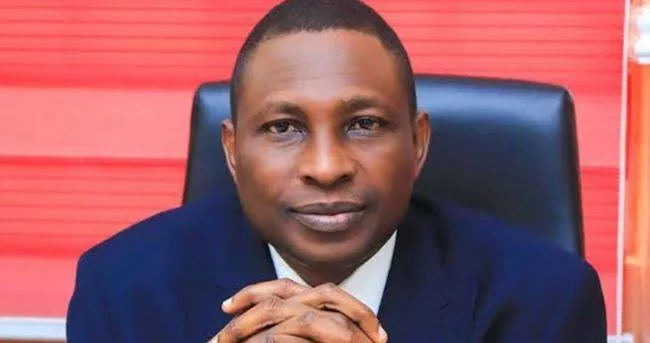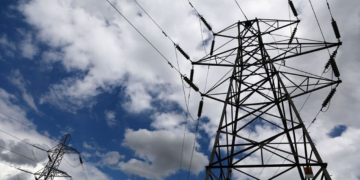Economic and Financial Crimes Commission (EFCC) has affirmed the government’s non-interference in its activities.
Its chairman, Mr Ola Olukoyede, stated this yesterday in Abuja at the 36th Anti-Corruption Situation Room (ACSR) Conference, with the theme, “The Fight Against Corruption Under the Tinubu-led Administration: A Review of the First Year in Office.”
It was organised by the Human and Environmental Development Agenda (HEDA) Resource Centre in collaboration with the United Nations Office on Drugs and Crimes (UNODC).
The organisers called on the federal government to bolster anti-corruption agencies and focus on evaluating and enhancing the fight against corruption in Nigeria.
Represented by Mr Wilson Uwujaren, the EFCC boss emphasised HEDA’s significant role in national advocacy and the pursuit of social and distributive justice.
He said, “From the perspective of the EFCC, we have observed a remarkable non-interference by the government in our daily activities, enabling us to fulfil our mandate effectively.”
He added that the EFCC achieved substantial progress in the past year, including numerous convictions and monetary recoveries amounting to millions of dollars.
He further said the significant enforcement actions have led to suspending a serving minister and several heads of agencies under investigation for fraud. Additionally, former ministers and governors are currently being prosecuted by the EFCC.
He, however, said the commission’s efforts in combating cybercrime, which threatens Nigeria’s image and future, have been relentless.
Olukoyede said they have shifted focus towards prevention by establishing the Fraud Risk Assessment and Control Department. This department assesses the vulnerability of ministries, departments, and agencies to corruption and devices measures to mitigate these risks.
Suraju emphasised the need for judicial independence, insisting that indicted government officials must face the law regardless of their political affiliations.
He stressed that anti-corruption agencies must be adequately funded and operate independently, free
from any form of interference, including from the Office of the President.
“Public participation in the fight against corruption is crucial,” Suraju stated. “This can only be achieved
when information is readily available to the people. The government must protect the freedom of information, allowing citizens to access the information necessary to engage with governance.”
He highlighted the importance of the National Orientation Agency (NOA) and urged its independence and sufficient funding.
“The NOA is a strategic government agency that should operate independently and be adequately funded to carry out the necessary reorientation of Nigerians. Young people involved in cybercriminality and public officials engaged in corruption can benefit from the NOA’s messages,” he said.
Suraju also criticised the National Assembly’s current approach to hearings, noting that they often need more genuine investigative rigour. “The hearings are usually just inquiries, ending in denials.
“The National Assembly should refer cases to anti-corruption agencies equipped with investigators capable of conducting forensic analysis. This would prevent political bias and ensure cases are resolved based on evidence rather than political settlements.”
Suraju said that by implementing these measures, HEDA and UNODC believe Nigeria can significantly enhance its fight against corruption and foster a more transparent and accountable government.
Also, the inspector-general of police (IGP) Kayode Adeolu Egbetokun, represented by AIG Ogundele Ayodeji, said corruption remains a pervasive challenge undermining development, eroding trust in public institutions, and hindering economic growth.
The inspector-general acknowledged the importance of initiatives like the Anti-Corruption Situation Room in the collective fight against this menace.
“Your unwavering commitment to transparency, accountability, and justice is commendable and deeply appreciated,” he said.
“The Nigeria Police Force remains steadfast in combating corruption at all levels. We are committed to upholding the rule of law, ensuring the integrity of our operations, and working collaboratively with stakeholders to create a society where justice prevails.”
He further highlighted the police force’s role as a partner in the fight against corruption, expressing a strong commitment to fostering an environment where integrity, trust, and good governance are paramount.”











